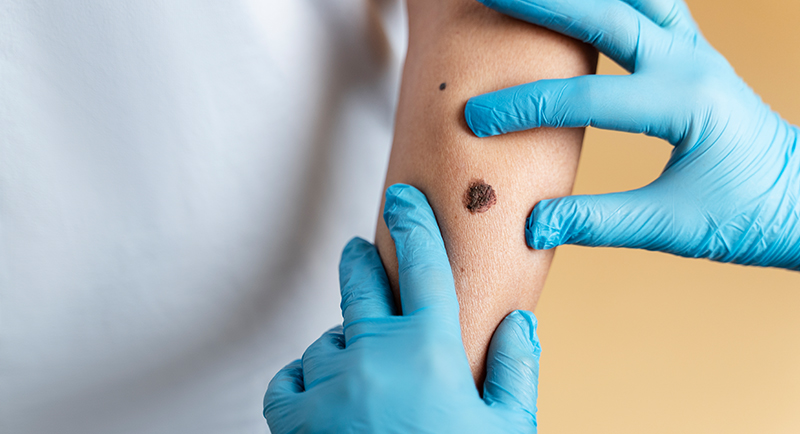Melanoma strikes men harder than women
Men and the deadly skin cancer called malignant melanoma are a bad combination. Of all cancers, skin cancer is by far the most common. Even though less lethal basal cell and squamous cell skin cancers (both non-malignant skin cancers) make up the vast majority of skin cancers, malignant melanoma, which only accounts for 1% of skin cancers, is the deadliest. And men have the greatest chance of dying from this disease. According to the American Cancer Society, for the year 2022, 7,650 people are estimated to die from melanoma, and 66% of them will be men.
Why do men have higher rates of melanoma?
There are various reasons why men appear to have a higher chance of developing melanoma. These reasons include:
- Men often have more exposure to ultraviolet (UV) light due to their jobs, increasing their risk of sunburns.
- Men may not use sunscreen as faithfully as women.
- Men likely do not inspect their skin as closely as women do, noticing any changes. If they do find a malignant spot, it’s often already at a later, more advanced, less curable stage.
- Men tend to avoid doctors, including dermatologists.
- Men are not as vain about their skin as women. They obsess less about aging or wrinkled skin than women. Therefore they take fewer precautions to protect their skin from sun damage.
- Men are less likely to apply sunscreen.
- Men’s skin does differ from women’s skin. Their skin is thicker, has less fat beneath the surface, and has more collagen and elastin, both fibers keeping skin firm and tight. This makes their skin react more intensely to UV rays than women’s skin does.
Proactive steps men can take to prevent melanoma
The largest organ in the human body is our skin. The biggest enemy of keeping skin healthy and protected from melanoma is the sun. Sunlight causes not only premature aging of skin but also skin cancer.
The logical step for men to reduce their risk of developing a dangerous and deadly melanoma is to do the following steps to protect their skin:
- No matter what time of year, even on cloudy days, always use a broad-spectrum, water-resistant sunscreen of SPF 30 or higher. Wear a wide-brimmed hat and sunglasses
- Men, who spend large amounts of time outdoors, should try to stay shaded as much as possible.
- When possible, wear long sleeves, pants, and a wide-brimmed hat to protect the skin.
- Avoid being outdoors from 10 am to 2 pm when the sun’s rays are strongest.
- Men should become familiar with their skin by doing regular skin self-exams. Here is an excellent video on how to check for suspicious-looking changes in the skin.
By being proactive, men can catch any skin changes early before malignant melanoma has a chance to grow. Skin is our first barrier to protecting the rest of the body. Maintaining good skin health throughout life can significantly keep it young-looking with a reduced risk of disfiguring and potentially deadly skin cancer.
Dr. David Samadi is the Director of Men’s Health and Urologic Oncology at St. Francis Hospital in Long Island. He’s a renowned and highly successful board certified Urologic Oncologist Expert and Robotic Surgeon in New York City, regarded as one of the leading prostate surgeons in the U.S., with a vast expertise in prostate cancer treatment and Robotic-Assisted Laparoscopic Prostatectomy. Dr. Samadi is a medical contributor to NewsMax TV and is also the author of The Ultimate MANual, Dr. Samadi’s Guide to Men’s Health and Wellness, available online both on Amazon and Barnes & Noble. Visit Dr. Samadi’s websites at robotic oncology and prostate cancer 911.

